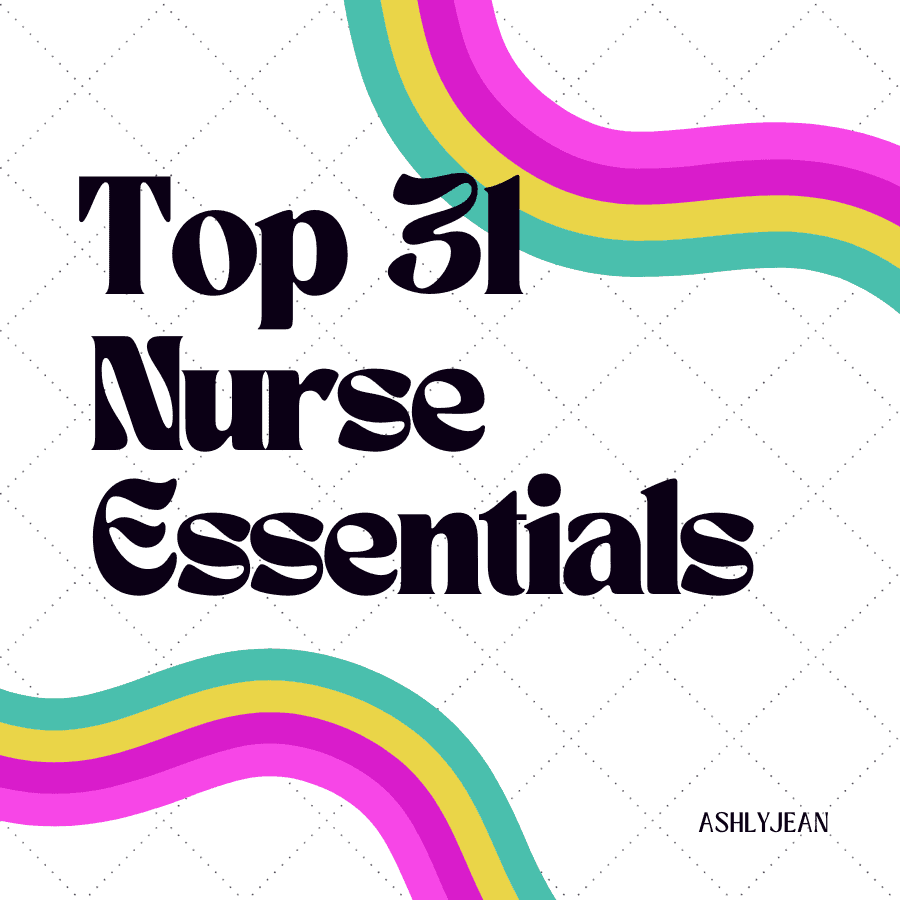Working as a nurse is a hard enough job as it is without having to worry about having the right gear.
Are you fully prepared when you hit the floor? Do you have all of your nursing must-haves for work gear ready for a successful shift?
I have been an ER travel nurse going on three years now and having the right nurse essentials has made ALL of the difference when it comes to having a smooth shift.
You know, besides all of the crazy sh*t that happens that’s out of my control.
(If you’re looking for a Travel Nurse Packing List, check this post here).
This guide will cover the clothing, accessories, and self-care items that I rely on every single day. Every single thing that is on this list, I own or have owned at some point in my career.
And if you are a new grad nurse, that first year on the floor is HARD. So take my advice, and purchase these items.
I promise you will be glad that you have them when the time comes.
The Top New Grad Nurse Essentials
1. Smart Watch
I prefer a smartwatch over a traditional one because of the apps that I use.
My watch of choice is the Apple Watch simply because I have an iPhone, but any smartwatch will do.
These make checking text messages, weather, and new and missed phone calls easy and discreet — especially when it’s not a great time to pull out your phone 😉.
2. Comfortable Shoes
I know this is a given, but in a profession that involves being on one’s feet for 12 hours a day, comfortable shoes will make or break you…and your body.
Seriously, foot problems lead to back problems, which lead to headaches, and the list goes on.
I have had some serious foot issues and my favorite work shoes are Brooks, On Cloud, and Hoka.
Pro tip: Have at least two pairs of work shoes and don’t wear the same pair two days in a row. Some nurses even switch shoes halfway through their shift to prevent tired feet.
3. Or Clogs
If running shoes aren’t your thing, I have also had great success with Danskos.
Yes, they take longer than your normal shoes to break in, but once they do, you will be living in those things.
I especially struggle with plantar fasciitis, and Dankos have all but pretty much taken my foot pain away.
Not to say that I have no foot pain, but I have noticed a significant difference.
4. Compression Socks
Do you want to have varicose veins when you’re 30? No. So buy some compression socks and wear them every shift.
I recommend buying high-quality pairs that have 30mmHg compression — you want them to be tight so they can better circulate the blood in your legs.
I must say I also notice that my feet and legs are a lot less tired when I wear mine.
A couple of brands I like are these from Amazon and also the ones from Figs.
5. Scrubs
This is for any new nurses out there who might not know which brand of scrubs to buy.
Many nurses, myself included, gravitate towards the Figs brand (did you know they sell them on Amazon!?). They fit well, have a good reputation, and look cute.
The only downside is that they are a bit on the pricier side.
Other popular brands are Med Couture, Grey’s Anatomy, and Carharrt.
6. An Extra Pair Of Scrubs
This is one nurse essential that often gets overlooked.
I can’t tell you how many times I have gotten blood, urine, or other bodily fluids on me while working in the ER.
Because of this, I keep an extra pair of scrubs with me and I am always so glad that I do when I need them.
7. Stethoscope
When it comes to stethoscopes, Littmann is top dog.
There are other brands, but many nurses who I work with agree that Littmann is the best.
This brand can be a bit pricey, but you can always count on your gear being top quality.
8. Trauma Shears
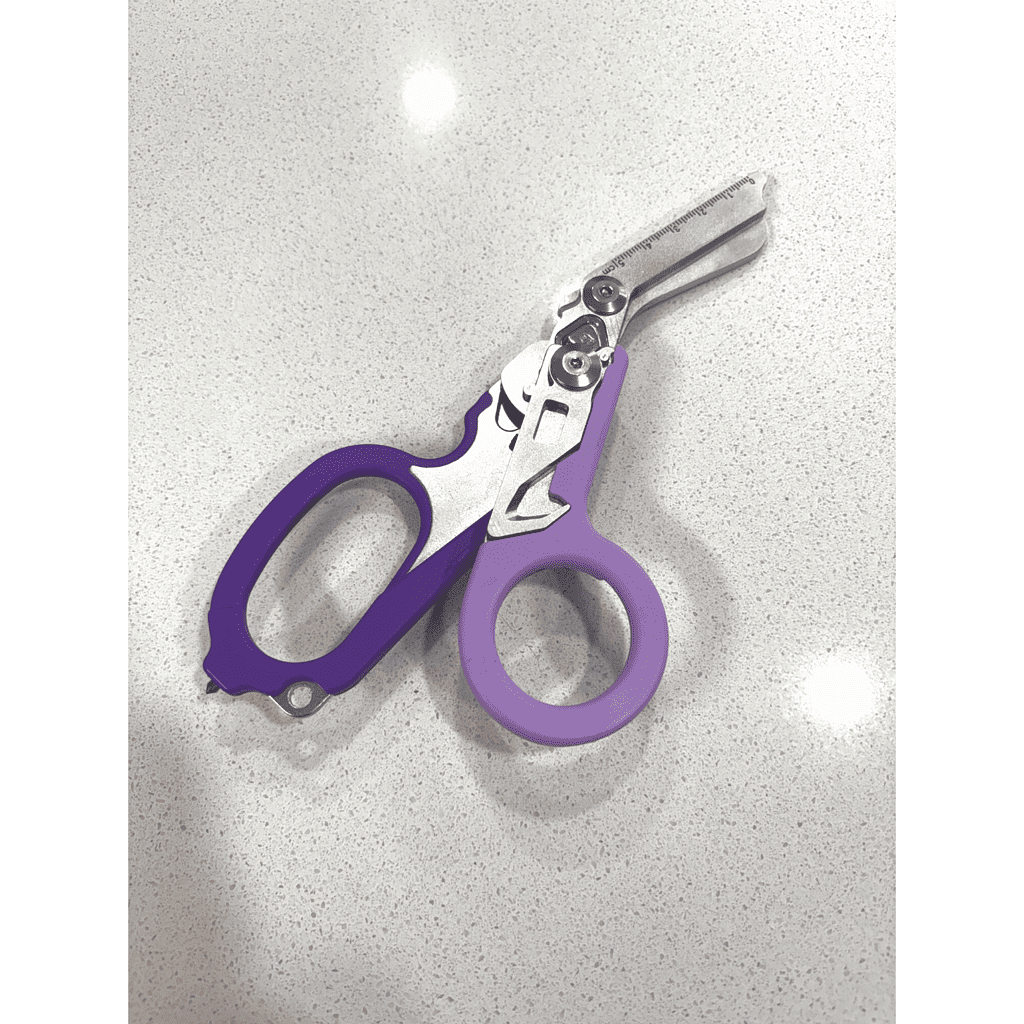
A good pair of trauma shears is a nursing must-have for me (I work in the ED).
Not only are they good for cutting tape and unscrewing lids, but when I get caught in a code blue or other critical patient situation, my shears are guaranteed to get used.
Raptors are a fancy pair of scissors (and for good reason), but I picked up these on Amazon and they have proven to be an excellent dupe for the Raptors with how sturdy and sharp they are.
I LOVE these trauma shears.
Not only are they half the price of Raptors, but they also come in a range of colors so no one “accidentally” steals your pair.
Check them out on Amazon, here.
9. Pens
I am one of those people who are mildly obsessed with good pens.
Others have no preference and will grab the first ink-filled stick they can find.
Here are a few of my favorite, ultra-smooth, no-smudge pens:
- Sharpie S-Gel Medium Point, Black Ink Gel Pen
- Uniball Signo 207 Gel Pen, Medium Point
- Pentel Energel Deluxe RTX Gel Pen, Medium Point
- Zebra Sarasa Retractable Gel Pen, 0.5
10. Sharpie
Sharpies are great for writing on IV medication bags, dating your dressing for a wound, and so much more.
I suggest buying a mini Sharpie that you can hang on your badge reel for easy access.
11. Notepad
I like to carry a mini notebook for taking notes during shift change report, when getting a new patient from EMS, verbal orders from doctors, and extra, relevant things the patient wants to add.
Something small enough to fit in the front shirt or cargo pocket is perfect.
12. Medical Tape
Picture this scenario: you are removing an IV from a patient who is getting discharged, you place the gauze down, but there is no tape to be found.
You are then scrambling from room to room or to the supply room to find some damn tape.
Don’t do this.
First thing on the floor, grab a roll of tape and slip it over the ears of your stethoscope, and you are set for the shift.
13. Nurse Tote Bag
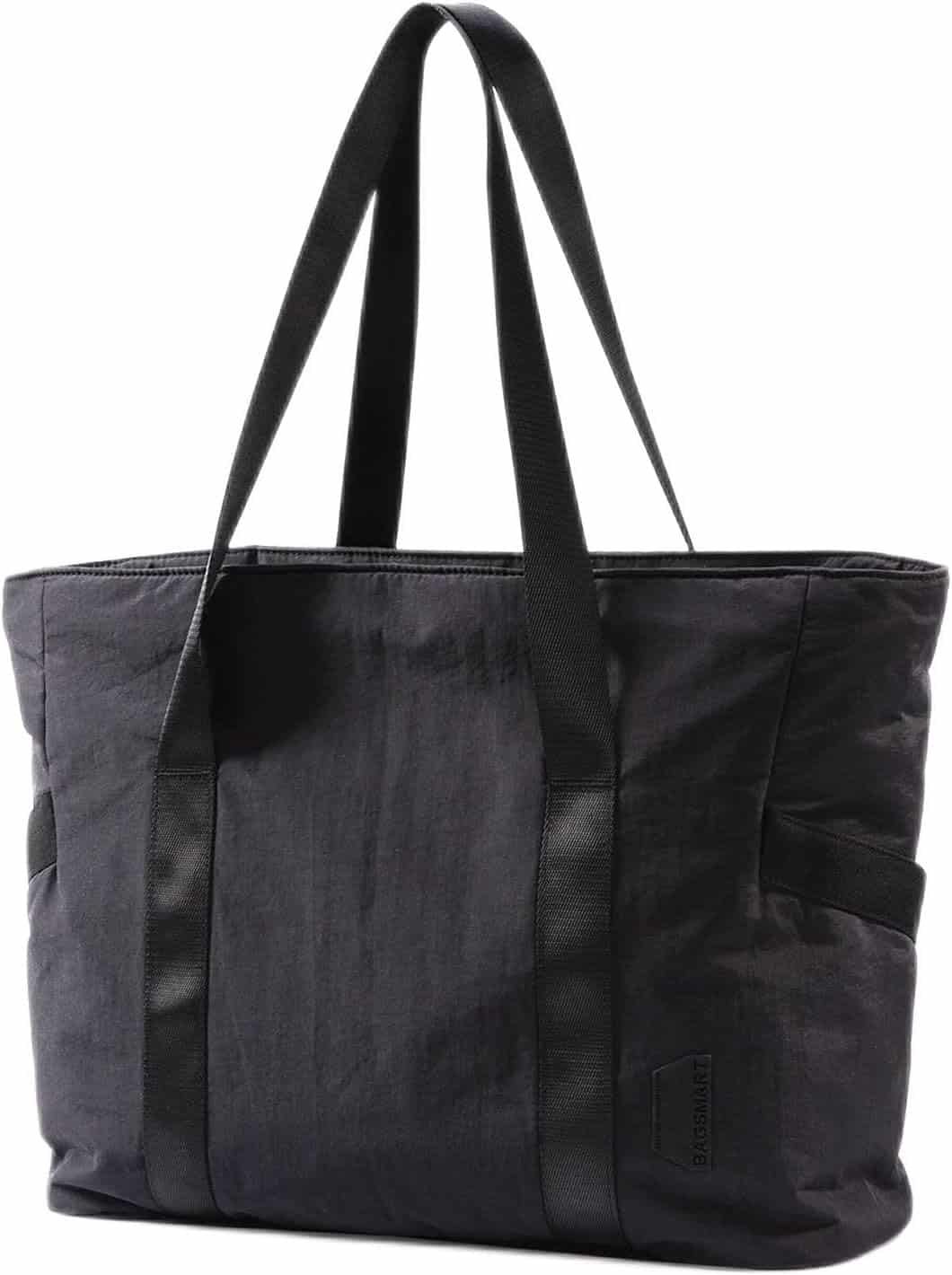
This nurse essential makes getting out the door so easy for me.
I keep my pens, shears, stethoscope, and badge all in one pocket together, put my lunch bag inside, and my water bottle in an outside pocket and I’m good to go.
The bag is this BagSmart Large Tote Bag.
The outside material is also waterproof for when you have that 18-mile walk-in from your car during the Winter, plus, it just looks expensive while being very affordable.
14. Lotion
Hand sanitizer and washing your hands dries them out like nothing else.
I actually know quite a few nurses who developed eczema from so much hand-washing.
Do your hands a favor and invest in some good hand lotion and keep it with you at your station.
You can even label it with your Sharpie so no one will steal it!
15. Lip Balm
There is something about being inside a hospital for 13 hours that makes my lips so chapped.
You would think I’ve been lost in the Sahara desert for 8 eight if you saw my lips post-shift.
To help combat this, I keep a small tube of chapstick on me at all times.
Hydrating helps too, but, you know, you can never have too many tubes of chapstick.
16. Pain Relievers
Yes, we work in hospitals.
No, we can not get Tylenol or Aspirin whenever we need it.
I suggest keeping your favorite pain reliever in your nurse bag for that irritating headache or aching feet.
Your coworkers will also thank you.
17. Lunchbox
Always bring lunch or at least plenty of snacks (I’m talking to you, new grad nurses).
Working as an RN doesn’t just mean long shifts, this is a very physical job.
Besides being on your feet for 12 hours, you will be moving and lifting patients, performing chest compressions (hello HIIT workout), and mixing antibiotics (IYKYK).
My point is that you need to feed your body. You need calories.
And not only that, but you will want a variety of options.
I usually eat my breakfast in the car, then have one main meal, and then lots of healthy, high-protein snacks.
Read, you need a large lunch box.
I’m not going to recommend one, but I do suggest that you go to a TJ Maxx or Target, and find something there.
18. Snacks
As I said above, nursing is a very physical job.
This means we are constantly burning calories and we don’t always have time to sit down and eat.
I make sure to bring plenty of high-protein snacks.
Things like protein bars, protein shakes, jerky, and apple slices with peanut butter are good and easy to take bites of while you’re running around.
19. Blue Light Glasses
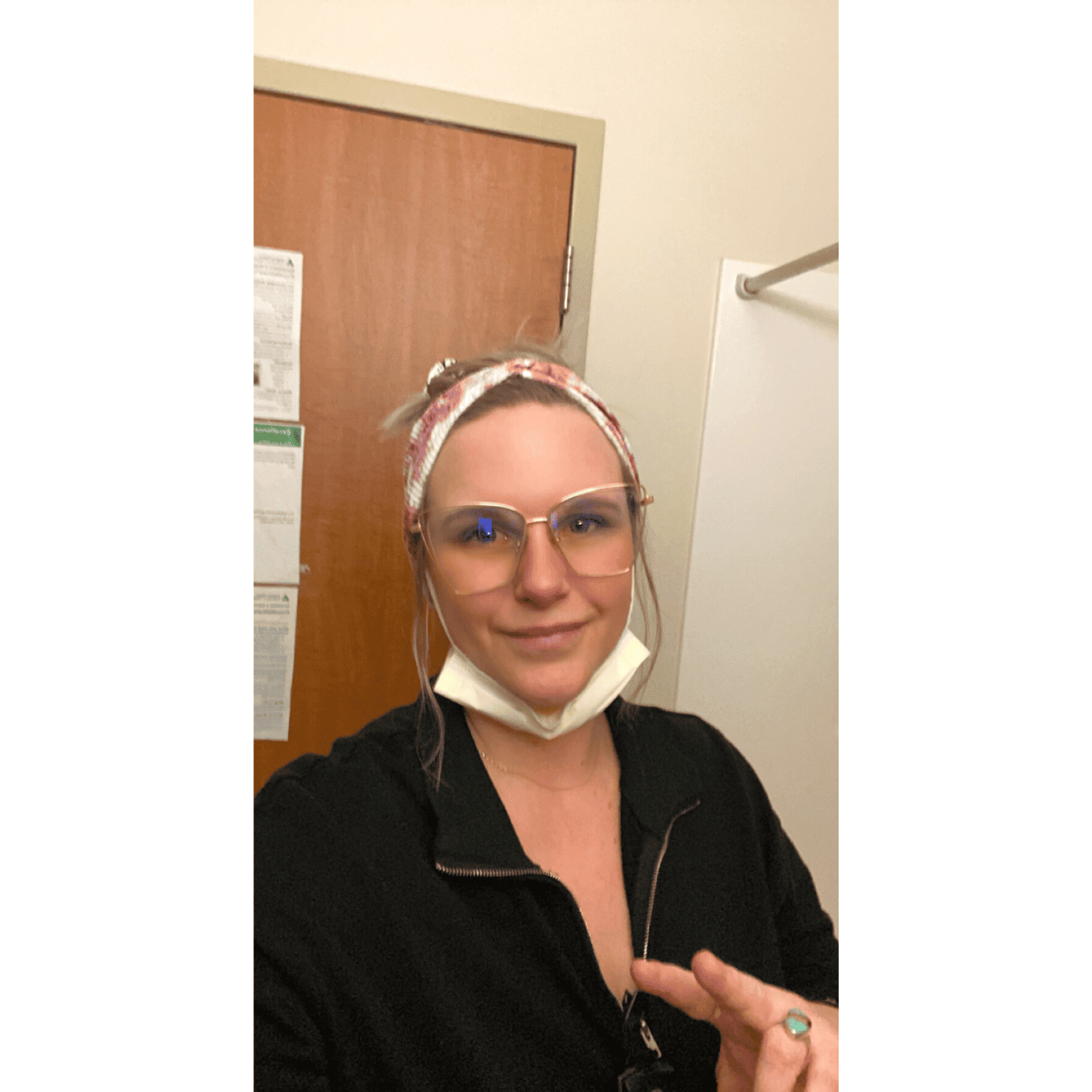
Nursing is 50% patient care and 50% charting (and more than that if you’re in an ICU).
Because of this, I wear blue light glasses to work.
Not only do these glasses help with eye fatigue and help prevent headaches, but they can also act as your eye protection (PPE).
Personally, I buy mine from Diff (pictured above) as their glasses tend to be more sturdy and excellent quality.
But if you prefer something from Amazon, they have plenty of cute and affordable options.
20. Scrub Jacket
It can get pretty chilly working on the floor so I always make sure to have my scrub jacket with me.
I may not always wear it, but it is good to have one just in case.
While this Pinspark Track Jacket may not be a traditional scrub jacket, I do get lots of compliments on it.
There are also some nice options on the Figs website, or some people like to wear a fleece jacket like this one to work.
I recommend wearing whatever you feel comfortable in.
21. Water Bottle
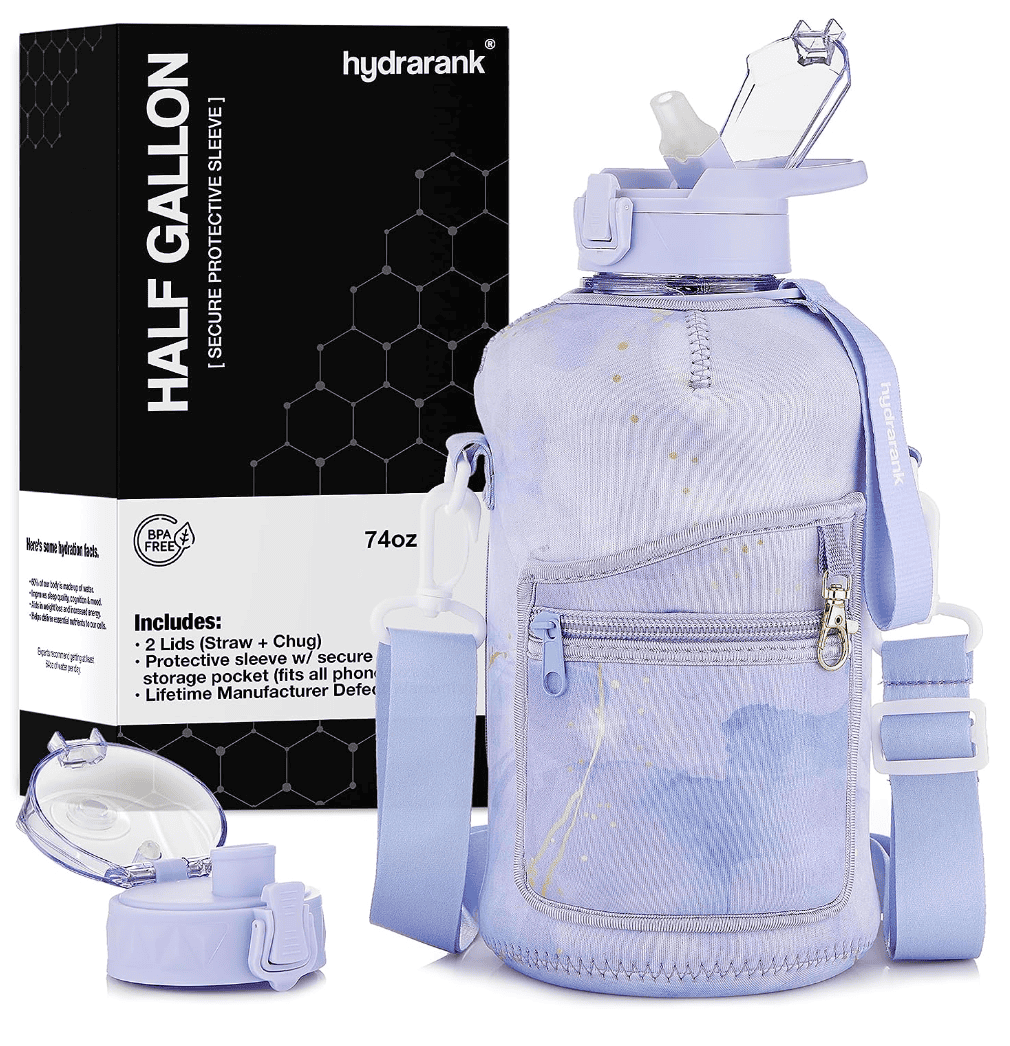
If you don’t hydrate on the job, I guarantee you will feel like you drank 10 too many tequila shots the next day.
Get yourself a large, stylish water bottle that you enjoy drinking out of (you are more likely to drink water if you find your bottle aesthetically pleasing).
And I say a large-sized cup because there isn’t always time to get yourself a refill.
I recently got the half-gallon-sized water bottle with a straw and a strap to carry(!) and I freaking love it.
Plus, I know it will last me most of my shift without going empty or having to find time to fill it up again.
22. Liquid IV
Speaking of feeling like you’re hungover, when I was a new grad nurse, I was lucky if I drank more than one bottle of water during my shift.
I always felt like shit the next day and it was totally preventable.
So, after I started putting Liquid IV in my water, there was a noticeable difference in my hydration status.
Even if I only had time for 30 ounces of water that night, I didn’t feel like I got hit by a truck the next day.
Pro tip: Limit yourself to one packet a day or else you could get diarrhea — they are that effective.
23. Nursing Apps
There are two nursing apps that I use on the daily.
Those are Nurse Grid for scheduling and Medtimer for counting vitals signs.
Medtimer has 15, 30, and 60-second timers; as they count up, you tap the watch face as you count respirations, heart rate, etc.
After you’ve finished counting, there is also a chart that tells you the normal vital sign ranges for infants and young children.
Nurse Grid is an app made especially for nurses to keep track of when they work.
I love it because if other people at your worksite use it too, you can see each other’s schedules to see who’s on for the night. It also makes swapping shifts a lot easier.
24. The Right Bra
Working as an RN is basically a contact sport.
Because of this, we ain’t wearing no regular bra to work. The girls need support!
I highly recommend you invest in a good sports bra (or two) that is comfortable enough to wear for 13-plus hours straight.
Something with medium support should be plenty (depending on the size of your girls).
High-support sports bras are probably too tight to wear for that amount of time.
Also, try to get one with wide straps so they aren’t digging into your shoulders.
25. Massage Gun
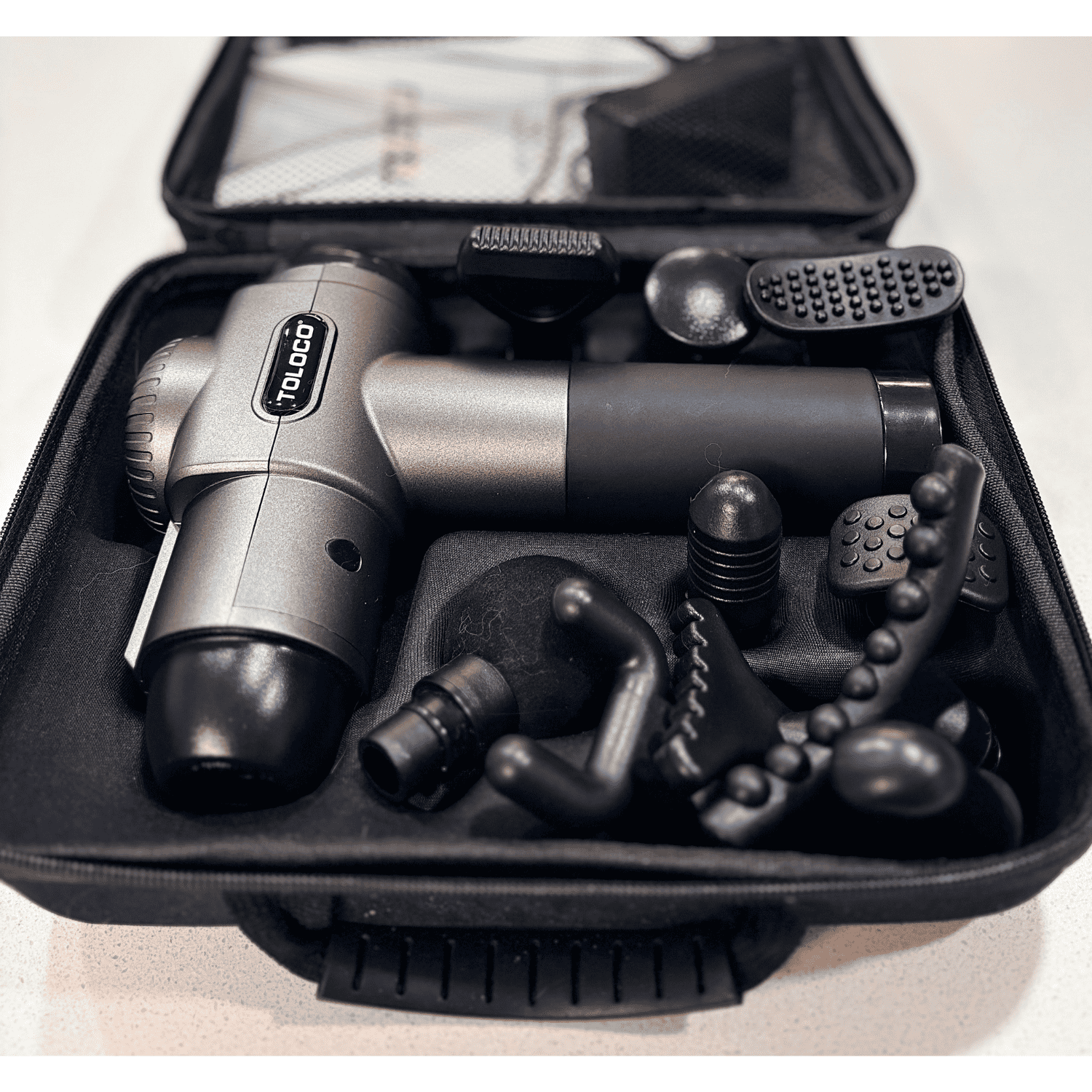
If you plan on having a long nursing career, then you better plan on taking care of your mental and physical health.
To cover the physical part, I suggest this massage gun from Amazon (I have the exact same one).
It comes with 10 massage heads, has a range of speeds and intensities, and girl, does it do a good job.
It is also small and lightweight enough that I take it with me everywhere I go as a travel nurse (see my post on the Top Travel Nurse Essentials).
26. Sleep Mask
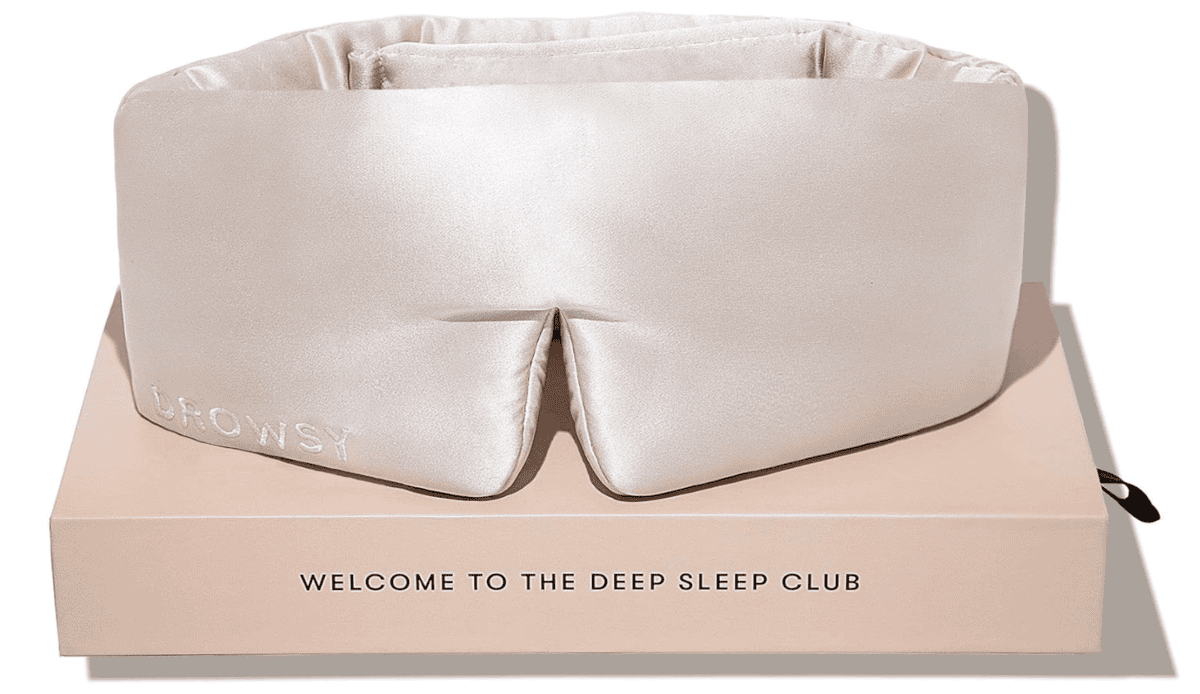
This item is very important, especially if you work nights.
I have done tons of research, and this luxury Drowsy sleep mask takes the cake.
It does have a heft price to it (in the $70 range) but it has silky soft satin on the outside, has a nice weight to it (like a weighted blanket for your face), lets 0% light in, and is guaranteed to last 3 years.
I promise you that it’s worth the splurge. Your sleep is SO vital to good health.
27. Caffeine
Nurses need to stay sharp, focused, and on their toes every single minute of their shift.
Becoming tired could potentially lead to a patient getting hurt.
Because of this, staying awake and alert is critical to provide the best possible care for your patients.
So how do I stay laser-focused for 12 hours?
Well, I always start off with one cup of coffee when I wake up and then I go between Celcius, Hi Ball, and Yerba Mate for during my shift.
I don’t know if it’s true or not, but I feel that switching caffeine sources prevents me from developing a tolerance to any one drink.
And a shoutout to anyone sensitive to caffeine, if you have never tried Hi Ball before, I highly suggest you do.
I get a smooth, steady increase in focus and energy and then most importantly, I never crash or suddenly feel like I went from 100 to 0.
28. Deodorant
You will get sweaty as a nurse, guaranteed. Whether you’re cleaning a patient or doing CPR, we get sweaty.
There will also be times when you forget to put deodorant on at home before you come to work. It happens.
I like. to carry a min deodorant stick in my purse for those just-in-case moments. Trust me, your coworkers will thank you.
29. Portable Phone Charger
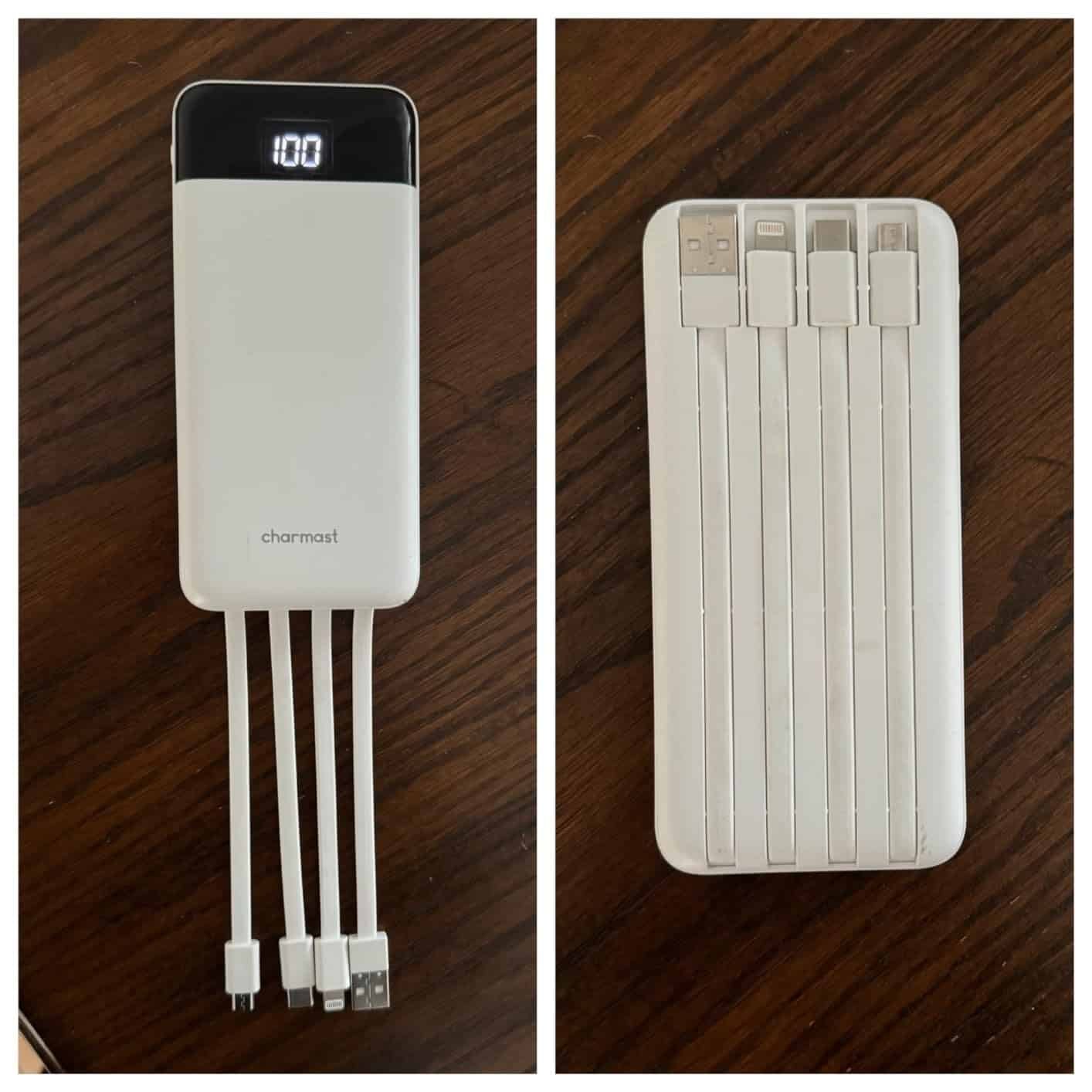
Having your phone or Airpods die on you at work is the worst.
And because of this, I am officially claiming that a portable charger is a nurse essential.
I carry this portable charger which has SIX outputs and THREE inputs.
Read, I can charge my Airpods and newest iPhone at the same time even though they use different heads.
Plus, if you switch brands of phones or upgrade, you don’t have to worry about buying a new portable charger.
30. Badge Reel Reference Cards
These are like mini cheat sheets for real life.
What cards you get depends on your unit, but working in the emergency department I always had a card that had full versus modified traumas and then one for pediatric vital signs.
A lot of hospitals give these out during orientation or there are also great options on Amazon and Etsy.
31. Clipboard
This is not something that I ever used in the ER, but I have seen many other new grads carry them and I can see why.
If you get the clipboard type that opens up and has a little compartment to store stuff, it can be great for notes, pens, notepads, your badge reel, and anything else you can fit in there.
I also recommend getting one that has reference notes for extra help during those first few months.
And then not to mention you will have something for your patients to write on that isn’t their lap or the back of your phone.
Wrapping Up
This list may seem large, but owning every single nurse essential on this list has helped me to have a successful, and lucrative, career in nursing.
From the clothes I wear to the tools in my pockets, I know that I can confidently hit the floor and be ready for anything.
So take the advice of someone who has succeeded in one of the most demanding professions out there, spend some money on Amazon, and walk onto that floor with confidence.
If you have other suggestions on items that are crucial for your success, I’d love to hear them! Please leave a comment and let’s make this list as comprehensive as possible!
FAQ
What do nurses need the most?
Nurses should have a stethoscope, pens, trauma sheers, water, and high-protein snacks. It’s not only about taking care of your patients, but also yourself.
What is essential for a nurse?
It’s essential for a nurse to be open to change, flexible, have a sense of urgency, and think outside of the box. Rarely do things go according to plan, so being open to change is of the utmost importance.
What is a good unit to start as a new grad nurse?
All of your teachers and preceptors will tell you that you need to start on a Med Surge floor — you see a little bit of everything. While this is decent advice, I say start in the unit you’ve always wanted to work in. I became a nurse to work in the ER, so that’s where I started. And I have no regrets.
Disclaimer: I may earn commissions from purchases made through the links in this post at no extra cost to you.
